| |
The McMinn Fellows
2023-2024
Joel Sturgeon
PhD candidate Joel Sturgeon holds the McMinn Fellowship for the 2023-24 academic year. He is currently at work on a dissertation entitled "States' Rights Reexamined: The Nullification Crisis, Indian Removal, and the South's Prevailing Political Ideology Leading to the Civil War."
2022-2023
Spencer King
Spencer King received his bachelor's and master's degrees from Emporia State University in 2014 and 2016. Spencer is interested in the history of race, gender, and antislavery efforts in nineteenth century America, especially in the nineteenth century West. His dissertation focuses on the development of abolitionist masculinity in Kansas Territory in the 1850s and how this influenced Kansans' ideas of what masculinity should look like amongst soldiers after the start of the Civil War. He specifically looks at the ways in which political violence between the Free Staters and Border Ruffians shaped views of masculinity amongst antislavery Kansans and how the Free State forces modeled ideas of masculinity that carried into the Civil War, such as the importance of enlistment, what acting honorably in battle entailed, and how attacks on civilian populations could complicate ideas of gender roles. In studying Bleeding Kansas and Kansas during the Civil War, Spencer aims to explain how antislavery Kansans perceived themselves instead of looking at how the rest of the U.S. viewed them, and he also wants to show how women and Black soldiers acted in the challenging circumstances they faced in Kansas.
2021-2022
Jeffrey Glossner
Jeffrey Glossner received his bachelor's degree in history from Penn State and his masters in history from the University of Mississippi. Jeffrey is generally interested in the intersection of race and class in the antebellum South and the ways in which sectionalism affected elite southern understandings of their society. His dissertation, titled The Crisis of White Supremacy in the Antebellum South: Poor Whites, Slavery, and the Coming of the Civil War, explores the role that the presence of a large class of poor landless white people in the South had in the development of southern intellectual, social, and political culture. In particular, he is interested in the problem that poor whites presented to elite southerners who were trying to establish a slave society based in the political ideal of white supremacy; finding that elite southerners wrote poor whites out of mainstream definitions of both southerness and whiteness and struggled to square their class problem with their race problem, creating a crisis of white supremacy as they tried to defend slavery during the sectional crisis which precipitated the American Civil War.
2020-2021
Sarah Elliott
A native of San Angelo, Texas, Sarah Elliott received her bachelor’s degree in history from Angelo State University in 2013. She completed her master’s degree in history at the University of Mississippi in 2016 and she continued into the doctoral program later that year. Elliott is currently a doctoral candidate and her research interests include the Civil War and Reconstruction, memory, and Indigenous history. Her dissertation examines the memory of the Civil War in Indian Territory and Oklahoma from roughly 1861 to 1965, and through this project she aims to address two major deficiencies in the historiography of the Civil War. First, she discusses the role of Indigenous Americans in the war within Indian Territory and their memories of the conflict. Second, she examines the influx of non-Indigenous peoples to Indian Territory in the late nineteenth century and how these conflicting interpretations of the war resulted in an embattled regional identity for this former border territory.
2019-2020
Beth Kruse
Beth Kruse is a native of Mt. Olive, Illinois, and a Ph.D. candidate at the University of Mississippi. She holds a Master’s Degree in History from the University of Illinois, Springfield and a Bachelor’s of Education Degree in Workforce Planning and Development from Southern Illinois University Carbondale. Kruse spent part of her professional career helping to research and develop innovative workforce development solutions for Central Illinois employers and workers with the Illinois Department of Commerce and Economic Opportunity. Her research interests include race, gender, and memory studies. She has presented her work on Civil War prisoner narratives at various conferences and symposia, and her research has earned her the Chapin Research Award from UIS and a Ventress Summer Graduate Fellowship from the University of Mississippi. A dedicated public historian, she has served as a volunteer Civil War Flag Conservationist for the Illinois State Military Museum, a Volunteer Interpreter at the Abraham Lincoln Presidential Museum, and a docent for the annual Behind the Big House Project with Preserve Marshall County and Holly Springs in Mississippi. Her digital humanities projects include creating the website “Mother Jones and Coal Mining Memory” and co-creating the website “Captured and Confined: Enemy Combatants and Illinois Military Prisons, 1861-1865.” She currently serves as the Assistant Principal Investigator on the Ida B. Wells Commemorative Tour, a racial reconciliation heritage tourism project funded by a Constellation Grant from the University of Mississippi.
2018
Eli Baker
Elias J. Baker grew up in central Arkansas, receiving his Bachelor's degree in History from Hendrix College in 2009. He earned his Master of Arts degree in History from the University of Mississippi in 2014, and is currently a Ph.D. candidate. His research interests include social and cultural history during the Civil War era and Reconstruction, and Civil War memory. His dissertation examines the history and memory of the Sultana steamboat disaster in April, 1865, focusing on the ways various groups, including survivors, contemporary observers, historians, and fiction writers remembered, commemorated, and politicized the tragedy. The dissertation seeks to expand understanding of the ways memories of disaster and suffering shaped communities and individuals in the generations following the Civil War.
2017
Kristin Bouldin
Kristin Bouldin grew up in Williamsburg, Virginia, and is a Ph.D. candidate at the University of Mississippi. She earned her bachelor’s degree in history and biology at the University of Virginia in 2011 and a master’s degree in history at the University of Mississippi in 2014. Her research interests include emancipation, contrabands and freedmen during the Civil War and Reconstruction, government policies regarding African-Americans during early Reconstruction, and the role of gender in the lives of freedmen. Her dissertation explores how federal policies formulated in wartime contraband camps shaped programs and policies of the Freedmen’s Bureau during Reconstruction, and includes extensive detail about conditions and hardships in the camps. The dissertation aims to address a significant gap in the literature of the Civil War and Reconstruction by connecting contraband camps to the Freedmen’s Bureau. She also regularly attends numerous historical conferences, including the Southern Historical Association, the Civil War Institute at Gettysburg College, and the Society of Civil War Historians.
2016
Nicholas Mosvick
Nicholas Mosvick grew up in Minnesota and is a Ph.D. candidate at the University of Mississippi. He received a Bachelor's degree in History and Political Science summa cum laude at the University of Minnesota. He earned his J.D. and Master's degree in History from the University of Virginia through their legal history joint-degree program. After working for a prominent think tank in Washington DC on constitutional issues and amicus briefs, he decided to pursue his Doctorate from the University of Mississippi in 2013. His research interests include constitutional and legal history of the Civil War and Reconstruction, as well as the early history of constitutional interpretation, slavery and the law, and the legacy of free labor constitutionalism. His dissertation will examine the popular constitutional discourse concerning conscription in the North during the Civil War, focusing primarily on the year of 1863 in the states of Pennsylvania and New York, where dissent was visible not only the in newspapers and streets, but inside the courtrooms as well. Mr. Mosvick hopes to add to the understanding of the changing nature of interpreting the Constitution during the Civil War Era.
2015
Thomas W. Robinson
Thomas W. Robinson grew up in Florida and is a Ph.D. Candidate at the University of Mississippi. He received a Bachelor's degree in History and a Master's degree in Library and Information Studies from Florida State University. After working in public history at both museums and archives for several years, he decided to go back to school and earned a Master's degree in History from James Madison University before pursuing a Doctorate from the University of Mississippi in 2012. His research interests include southern dissent, southern nationalism, citizenship and identity, sectionalism, and the Western theater of the war. His dissertation will examine the growth of a white middle class in Georgia during the late antebellum period. This group formed their own distinct identity and ideology that often conflicted with southern norms. Many middle class Georgians became dissenters during the secession crisis and the war years and the dissertation will hone in on those men and women. Mr. Robinson hopes to broaden the understanding of the scope and source of dissent in the South during the Civil War Era.
2014
Christine A. Rizzi
Christine A. Rizzi received undergraduate degrees in both History and Philosophy at Flagler College in her native state of Florida. She earned her Master of Arts degree in History from the University of Mississippi in 2012. Rizzi remained at the University of Mississippi to continue working with its excellent faculty and she is now a Doctoral Candidate. Her research interests include race, class, gender, and identity formation in 19th and 20th century America. Her dissertation will explore the intersection of mobility and identity in Civil War Era Florida among Seminole Indians, white pioneers and investors, enslaved African Americans, and Civil War soldiers and civilians. Rizzi aims to draw Florida into a broad understanding of the Civil War Era that revolves around questions of belonging, citizenship, and the role of the state.
2013
Boyd Harris
Boyd R. Harris hails from the foothills of North Carolina and is currently a doctoral candidate in History at the University of Mississippi. He attended the University of North Carolina at Chapel Hill and graduated with a double major in Peace, War, and Defense and History in 2003. Harris received his Masters of Arts in History from the University of North Carolina at Charlotte in 2010. His research interests include nineteenth and twentieth-century American history, with an emphasis on public history and memory. His dissertation will examine the creation and development of Civil War battlefield state parks and their role in perpetuating Lost Cause memory into the twenty-first century. During the summer he works as a seasonal park ranger at Appomattox Court House National Historic Park.
2012
Amy L. Fluker
Amy L. Fluker graduated summa cum laude from Westminster College in Fulton, Missouri in 2008 and received her Master of Arts degree in history from the Univeristy of Mississippi in 2010. That same year, she entered the PhD program at the University of Mississippi. Her dissertation project will examine Missouri's unique role in the Civil War and distinctive mode of post-war commemoration. Fluker hopes this work will mark the inclusion of the widely neglected border states into our understanding of Civil War memory.
2011
Miller "Bill" Boyd, III
Miller "Bill" Boyd III, a native of St. Louis, is a 1998 honors graduate of Xavier University of Louisiana. In 2006, he received a Masters in African-American Studies from Boston University. His final Masters project entitled "Privilege Lost: Shifting Creole Identity in Antebellum Louisiana" was published in The Griot: The Journal for the Southern Conference on African-American Studies in 2007, winning the organization's top honor for scholarship that year. Boyd began working on his Ph.D. in Early American History at the University of Mississippi in 2008. His dissertation, tentatively entitled "The Exigencies of War: the African-American response to the Civil War in Missouri" examines black military participation, contraband free labor, education, and the struggle for a semblance of economic and social parity in the largest border state. As a result of his scholarship, Boyd has received numerous awards and fellowships including the Robert Eldridge Seiler Supreme Court of Missouri Historical Society Fellowship and the William Foley Research Fellowship.
2010
Rachel Smith Purvis
Rachel S. Purvis is currently a history Ph.D. candidate at the University of Mississippi. She received a Bachelor of Arts in history from the University of Arkansas in 2002. She earned a Master of Arts in history from the University of Mississippi in 2005. Purvis's research interests include nineteenth-century America, with a particular focus on race and nationalism. Her dissertation project, "'Maintaining intact our homogeneousness': Race, Citizenship, & Reconstructing Cherokee' examines the rebirth of the Cherokee Nation after the Civil War emphasizing the intersection of race, citizenship, and nationalism. The history of the Cherokee Naiton in the tumultous era following the Civil War contributes an alternative story of Reconstrcution to the current scholarship, one that expands the typical timeframe and geographic scope of previous studies. Purvis was recently awarded the Cassius Marcellus Clay Postdoctoral Fellowship from Yale University and the Gilder Lehrman Center for the Study of Slavery, Resistance, and Aboloition. The Clay Fellow performs independent research in nineteenth-century U.S. history with a special interest in the age of slavery, emancipation, the Civil War, and Reconstruction during the two-year appointment.
|
|
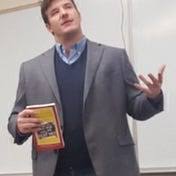



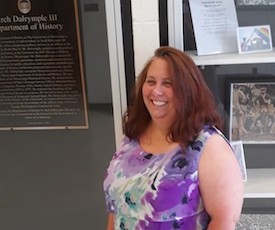

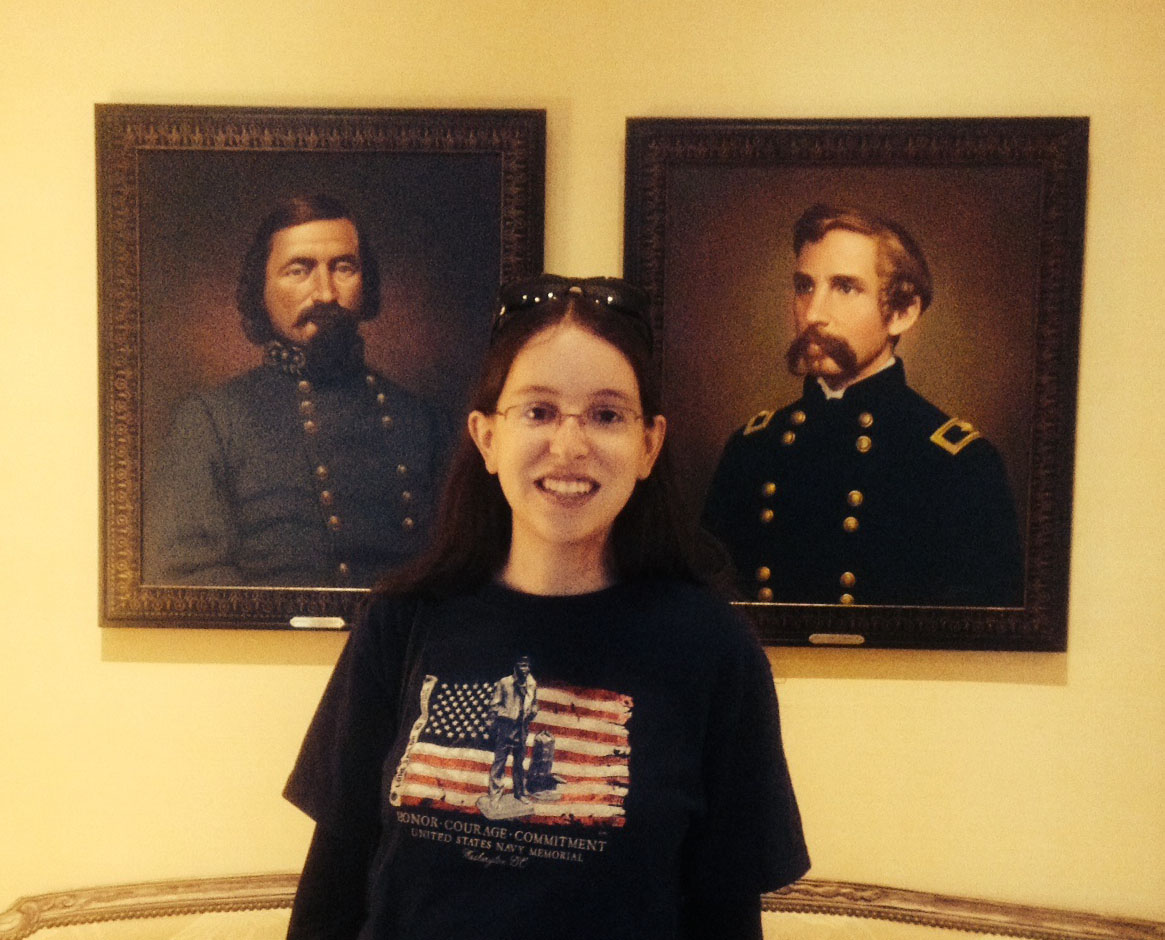



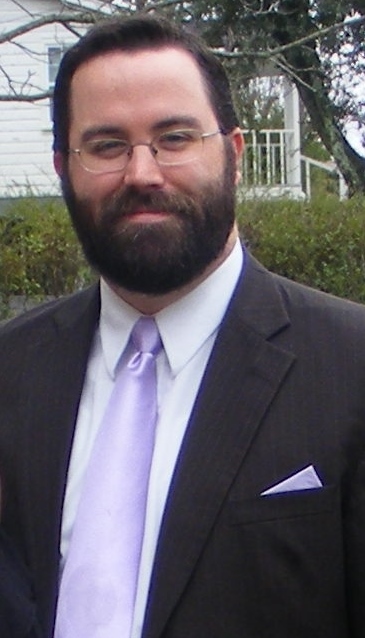


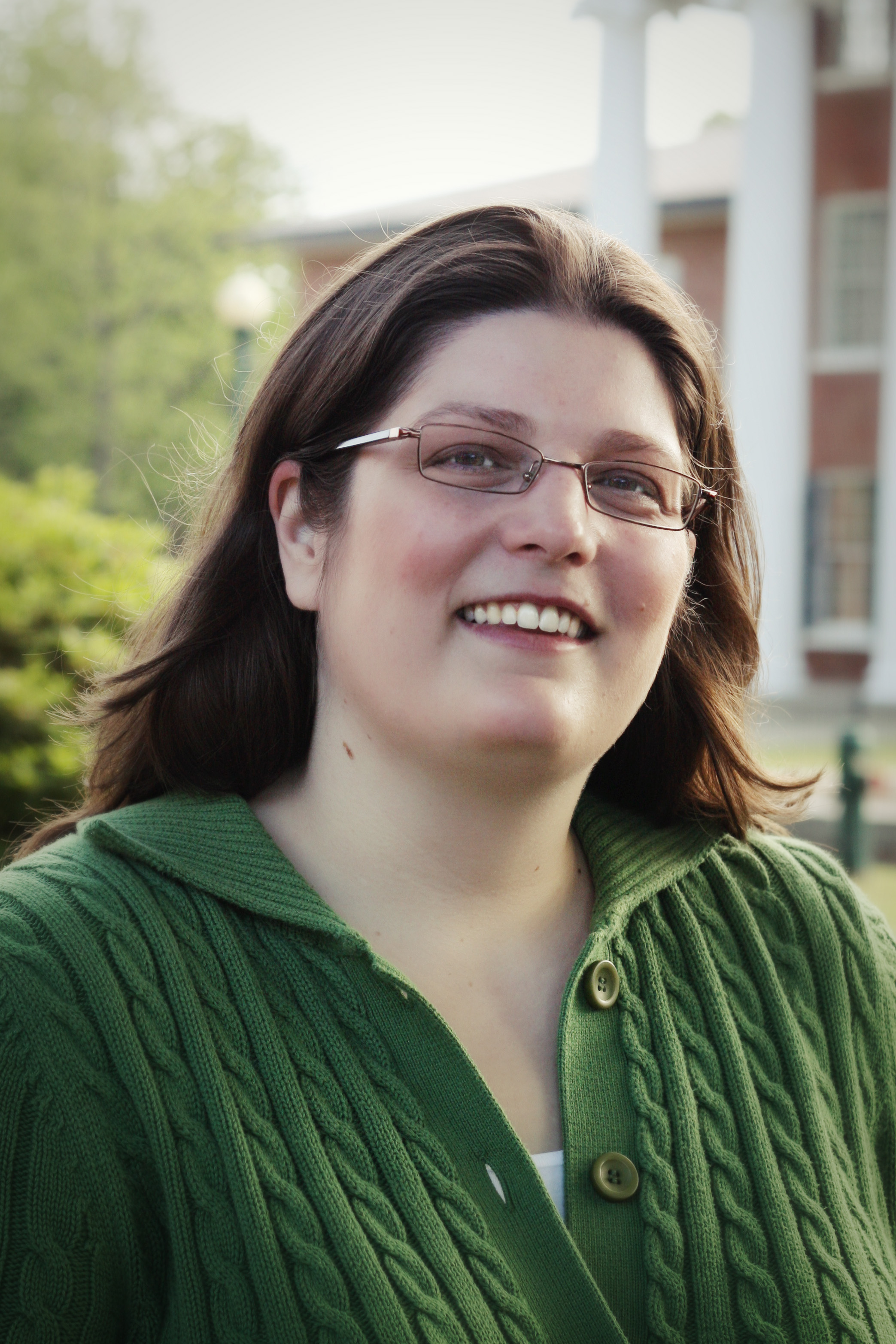
|

